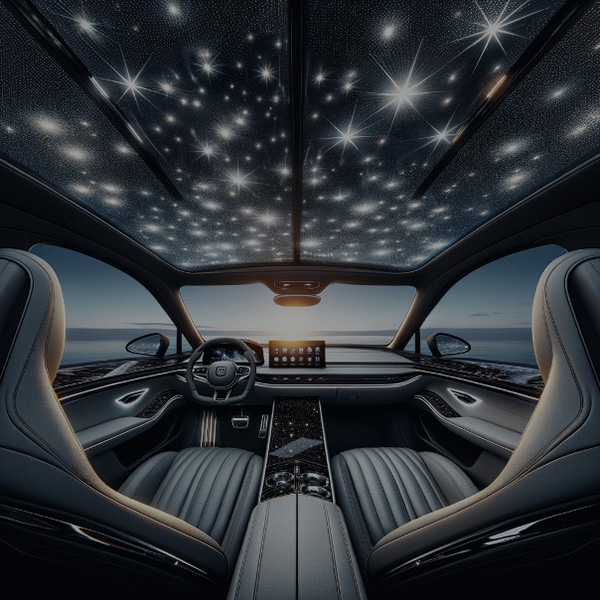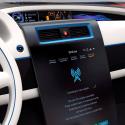Imagine a future where your car's windshield becomes an immersive display seamlessly, projecting navigation directions, safety alerts, and augmented reality information onto the road ahead. As you drive at night, your headlights automatically adjust their beam pattern to avoid blinding oncoming drivers, providing optimal visibility. Your dashboard comes alive with a vibrant, customizable display perfectly visible even in bright sunlight. This isn't science fiction - it's the promise of microLED technology in automotive applications.
MicroLED displays are poised to revolutionize the automotive industry, offering a quantum leap in performance over current LCD and OLED technologies. While OLED displays have made significant inroads in automotive applications due to their superior contrast and deep blacks, they face challenges in brightness, power efficiency, and lifespan, especially in the high-temperature environments common in vehicles. MicroLEDs address these limitations head-on, providing a compelling solution for next-generation automotive displays and lighting.

Key advantages of microLED over OLED in automotive applications include:
- Higher Brightness: MicroLEDs can achieve exceptional brightness levels crucial for visibility in direct sunlight - a common challenge for OLED displays.
- Improved Durability: MicroLEDs are composed of robust semiconductor materials, making them more resistant to the extreme temperatures, humidity, and vibrations encountered in automotive environments.
- Longer Lifespan: MicroLEDs don't suffer from the same degradation issues as OLEDs, ensuring consistent performance over the vehicle's lifetime.
- High Transparency: MicroLEDs provide high levels of transparency while maintaining high resolution.
- Enhanced Energy Efficiency: MicroLEDs consume less power than OLEDs, contributing to improved fuel efficiency and longer battery life in electric vehicles.
In upcoming models, we can expect to see:
- Advanced Head-Up Displays (HUDs): MicroLED-powered HUDs will project crisp, bright information directly onto the windshield, enhancing driver safety and reducing distraction.
- Intelligent Adaptive Headlights: MicroLED headlights will offer precise control over light distribution, enabling features like glare-free high beams and dynamic light patterns that adapt to road conditions.
- Customizable Exterior Lighting: Tail lamps and signal lights will become high-resolution displays, capable of showing complex patterns and even messages to other drivers.
- Next-Generation Infotainment: Dashboard displays will offer vivid colors, perfect blacks, and ultra-fast response times, creating a more immersive and responsive user interface.
- Transparent Displays for Lighting and Interior: Transparent microLED displays will be integrated into vehicle windows and interior surfaces, providing additional information and customizable ambient lighting while maintaining visibility.
The potential of microLED technology extends beyond improved visuals. These highly efficient displays contribute to better fuel economy in traditional vehicles and extended range in electric cars. They're also incredibly durable and able to withstand the harsh conditions of automotive use, from extreme temperatures to constant vibrations.
Due to these and other advantages, the automotive industry is beginning to invest heavily in microLED development. As production techniques improve and costs decrease, we can expect to see this technology become increasingly common in vehicles across all price ranges.
The future of automotive lighting and displays is bright, quite literally. MicroLED technology promises to transform our vehicles into safer, more efficient, and more engaging machines, ushering in a new era of automotive design and functionality. As this technology matures, it's poised to overcome the limitations of OLED displays, offering a superior solution for the demanding requirements of modern vehicles.






